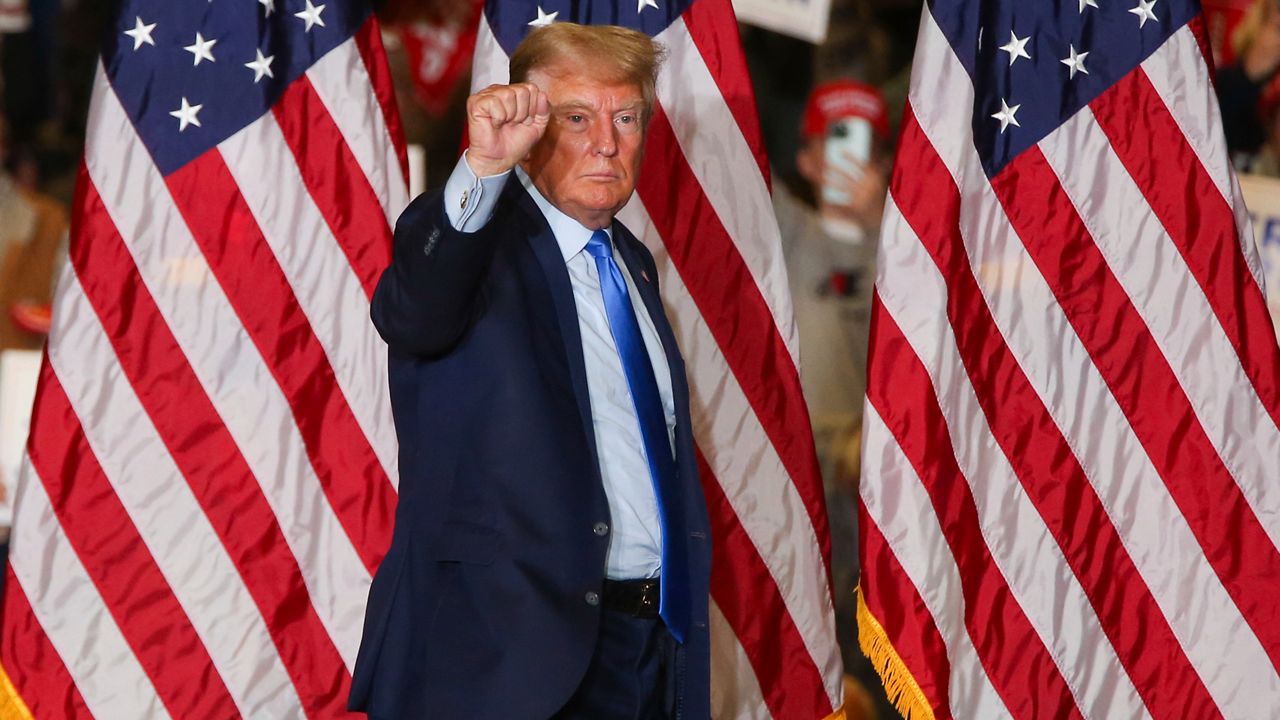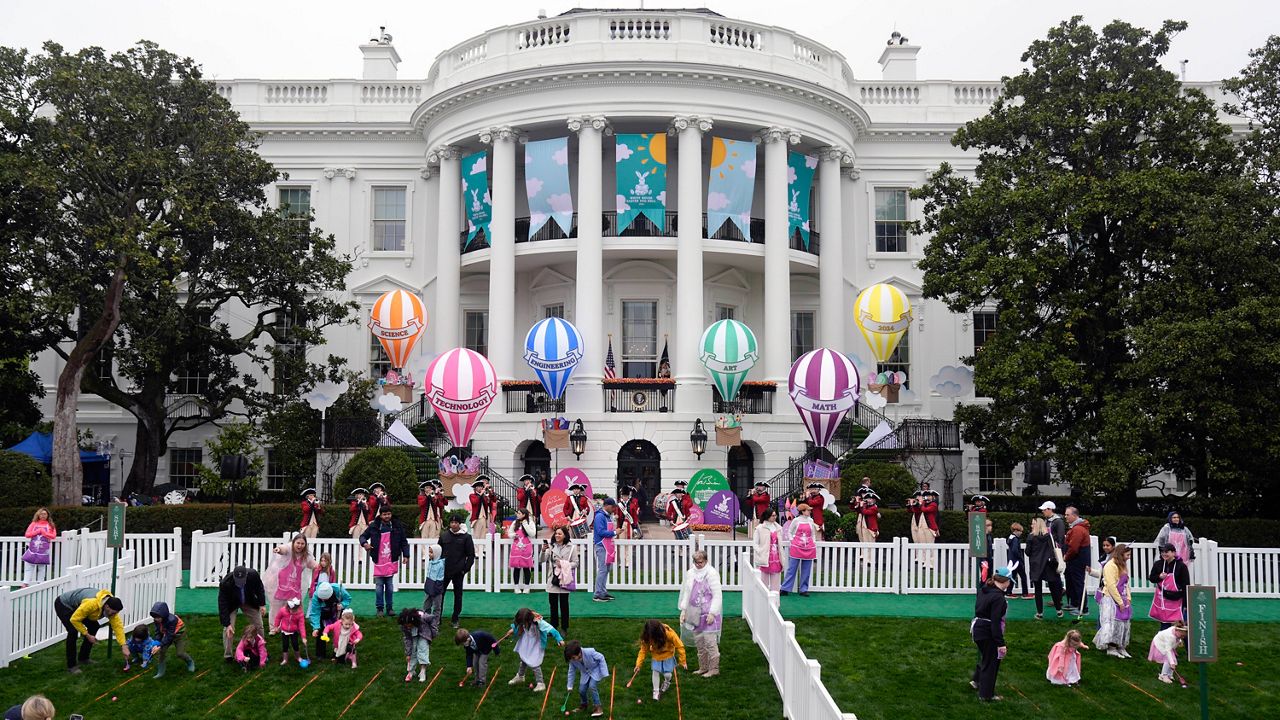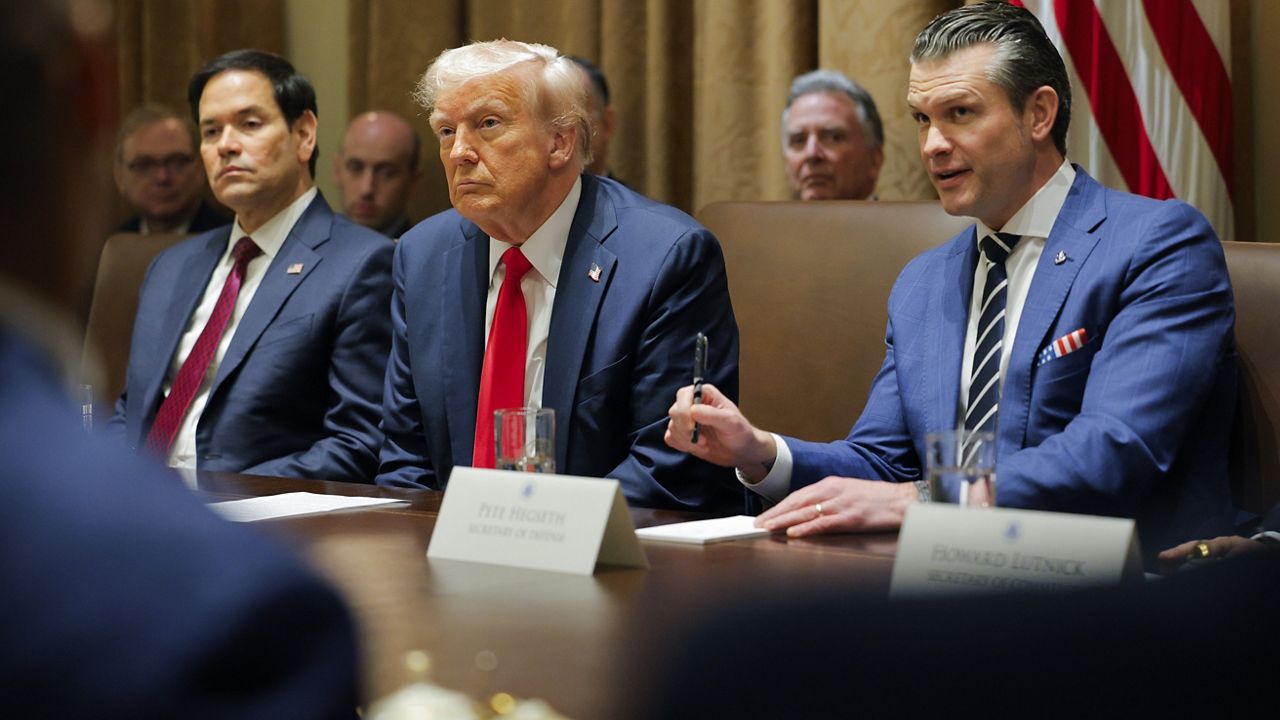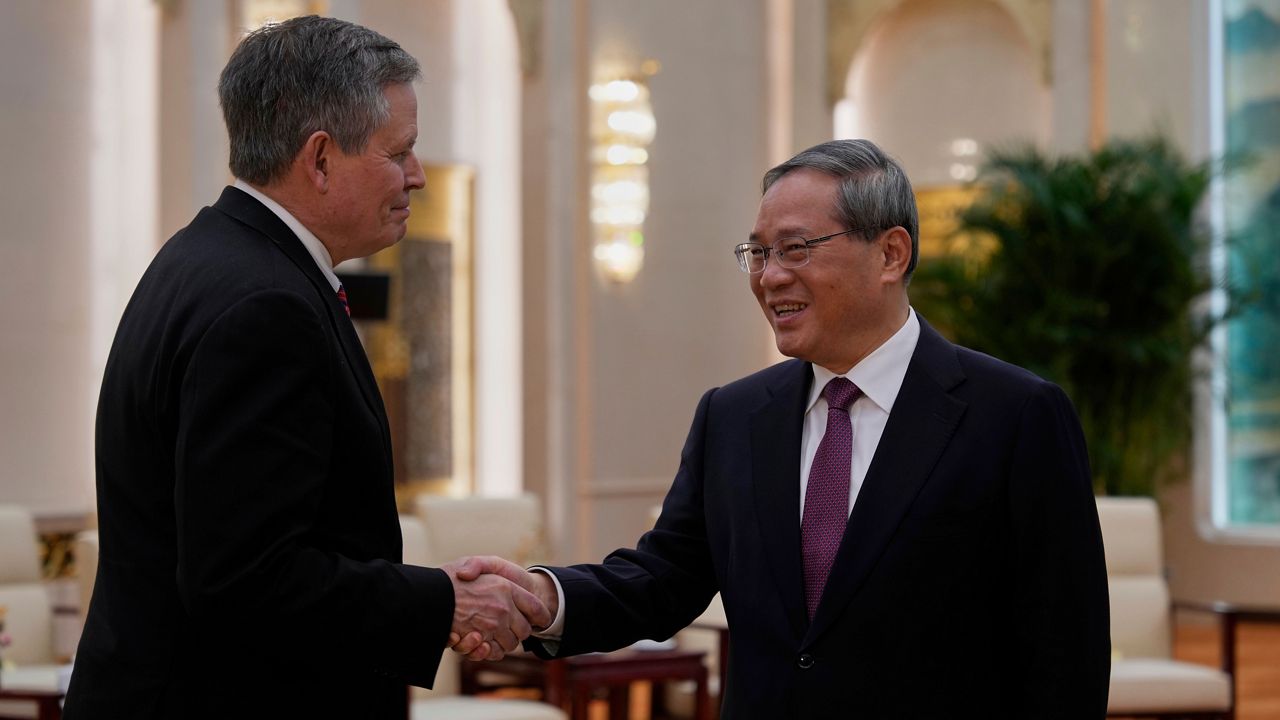In a Veteran’s Day speech in New Hampshire over the weekend, Former President Donald Trump, the frontrunner for the 2024 Reublican nomination, described his political enemies as "vermin," adopting the dehumanizing, exterminationist rhetoric of Adolf Hitler and other dictators and drawing outcry from experts and President Joe Biden's reelection campaign.
“Today, especially in honor of our great veterans on Veterans Day, we pledge to you that we will root out the communists, Marxists, fascists and the radical left thugs that live like vermin within the confines of our country that lie and steal and cheat on elections,” Trump said in the closing moments of his speech, repeating his false claims the 2020 election was stolen.
“The real threat is not from the radical right. The real threat is from the radical left and it's growing every day, every single day,” he continued. “The threat from outside forces is far less sinister, dangerous and grave than the threat from within. Our threat is from within.”
Nazi officials used propaganda to dehumanize Jews and other persecuted enemies of their regime as diseased-riddle vermin, degenerates and racially inferior, according to the U.S. Holocaust Memorial Museum. Hutus massacred Tutsis they labeled “cockroaches” during the Rwandan Genocide in the 1990s, according to Human Rights Watch. It is a trope repeated by authoritarians throughout history seeking to inflict violence on their chosen foes.
“It doesn’t echo ‘Mein Kampf,’ this is textbook ‘Mein Kampf,’” said Jason Stanley, a Yale professor and author of “How Fascism Works: The Politics of Us and Them,” on MSNBC on Sunday night. “Mein Kampf,” Hitler’s 1925 genocidal manifesto that laid out his ideological justification for the Holocaust, equated communism with Judaism and described Jews as “vermin” and maggots.
“He took it that Jews were behind the international left, Marxism, communism, but his real target was democracy,” Stanley added of Hitler. “This overbroad use of Marxism to target basically any political opponent, this is familiar from fascism and the way you attack democracy. And of course labeling your political opponents vermin, yeah, I mean the Nazis targeted their political opponents, they targeted them for incarceration and concentration camps.”
"To call your opponent 'vermin,' to dehumanize them, is to not only open the door but to walk through the door toward the most ghastly kinds of crimes," historian and author Jon Meacham said on MSNBC's "Morning Joe" on Monday.
Biden’s campaign denounced the remarks on Monday, drawing a direct comparison to Hitler and Italian fascist dictator Benito Mussolini.
“On a weekend when most Americans were honoring our nation’s heroes, Donald Trump parroted the autocratic language of Adolf Hitler and Benito Mussolini – two dictators many U.S. veterans gave their lives fighting, in order to defeat exactly the kind of un-American ideas Trump now champions,” Biden campaign spokesperson Ammar Moussa said in a statement.
The White House also took aim at Trump's comments, with deputy press secretary Andrew Bates saying the former president's use of "vermin" to describe dissent and protest "would be unrecognizable to our founders, but horrifyingly recognisable to American veterans who put on their country’s uniform in the 1940s."
"Employing words like ‘vermin’ to describe anyone who makes use of their basic right to criticise the government ‘echoes dictators’ like Hitler and Mussolini," Bates said in a statement, later adding: "President Biden believes in his oath to our Constitution, and in American democracy. He works to protect both every day.”
Republican National Committee Chair Ronna McDaniel declined to address the “vermin” remark in multiple media appearances on Sunday.
“I am not going to comment on candidates and their campaign messaging. I will say this, I know President Trump supports the veterans, our whole party supports our veterans,” McDaniel said. “The one thing I wish had come out more in our debate is that the RNC and NBC for the first time ever had a Jewish cosponsor for debate.”
McDaniel's critics took aim at her for not condemning Trump's rhetoric.
"It should be easy to denounce rhetoric reminiscent of Hitler and Mussolini, yet [McDaniel] refuses to stand up to Donald Trump and condemn his dangerous, un-American speech for what it is: disqualifying for anyone seeking the highest office in the land," said Democratic National Committee Chair Jaime Harrison on Monday.
"When [McDaniel] refuses to condemn the GOP’s leading candidate for using the same Nazi propaganda that mobilized 1930s-40s Germany to evil, it’s fair to assume she’s collaborating," former Wyoming Rep. Liz Cheney, a prominent Trump critic, wrote on X, formerly Twitter. "History will judge Ronna McDaniel and every Republican who is appeasing this dangerous man."
Trump spokesperson Steven Cheung told the Washington Post that “those who try to make that ridiculous assertion are clearly snowflakes… and their entire existence will be crushed when President Trump returns to the White House,” later clarifying he intended to say “sad, miserable existence" instead of their “entire existence.”
With less than a year to go to the 2024 presidential election, Trump is very likely to be the Republican Party’s nominee for the third time — he leads his GOP rivals by over 40 percentage points nationally and 20 to 30 percentage points in key early primary states — and his administration is already planning a transformative remaking of the federal government. Among their goals: the persecution of his political enemies by the FBI and the Department of Justice, the elimination of the constitutional principle of birthright citizenship for the children of non-citizens, and mass deportations of the predominately Hispanic migrants who have crossed the border and Muslim and Arab immigrants who harbor what his administration deems “terrorist sympathies.”
“Whether banning Muslims, rounding up Latinos, or empowering white supremacists, Donald Trump is laser-focused on making life worse for some of our country’s most vulnerable communities,” the Biden campaign said in a statement on Monday.
He has also expressed desire for the government to inflict more violence on its enemies, including calling for the execution of the military’s highest-ranking general for treason — forcing the then-chair of the Joint Chiefs of Staff to take security measures to protect his family. He’s called for shoplifters to be shot and drug dealers to be given the death penalty. He has described his supporters who are imprisoned for crimes connected to the violent Jan. 6, 2021 Capitol riot as “hostages” and participated in a song alongside at least four incarcerated men who were later found guilty of assaulting law enforcement officers and a fifth who threatened to kill top government officials.
Saturday was not the first time Trump has echoed Nazis and other fascists. In September, he accused “liberal Jews” of voting to “destroy America and Israel.” Last year, he dined with the rapper Ye, formerly known as Kanye West, and white supremacist Nick Fuentes, who have both praised Hitler and denied the death of millions during the Holocaust. He described migrants arriving in the U.S. as an “invasion” on Saturday and, in October, said undocumented immigrants were diseased and “poisoning the blood of our country,” spouting the white supremacist conspiracy theory that nonwhite migrants are being brought into the country to dilute white Americans’ power.
“Insinuating that immigrants are ‘poisoning the blood of our country’ echoes nativist talking points and has the potential to cause real danger and violence. We have seen this kind of toxic rhetoric inspire real-world violence before in places like Pittsburgh and El Paso. It should have no place in our politics, period,” Anti-Defamation League CEO Jonathan Greenblatt said at the time, referencing two deadly mass shootings of Jews and Hispanic Americans, respectively, by white supremacist believers of the myth of "great replacement."
Democrats and experts on fascism and authoritarianism are sounding the alarm that Trump’s rhetoric continues to have the potential to cause real danger and violence as support for political violence rises, including among one-third of Republicans. Presidential historian and occasional Biden adviser Jon Meachem warned on Monday that “to call your opponents vermin to dehumanize them is to not only open the door, but to walk through the door toward the most ghastly kinds of crimes.”








